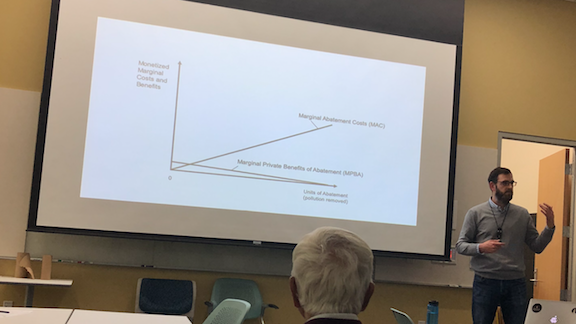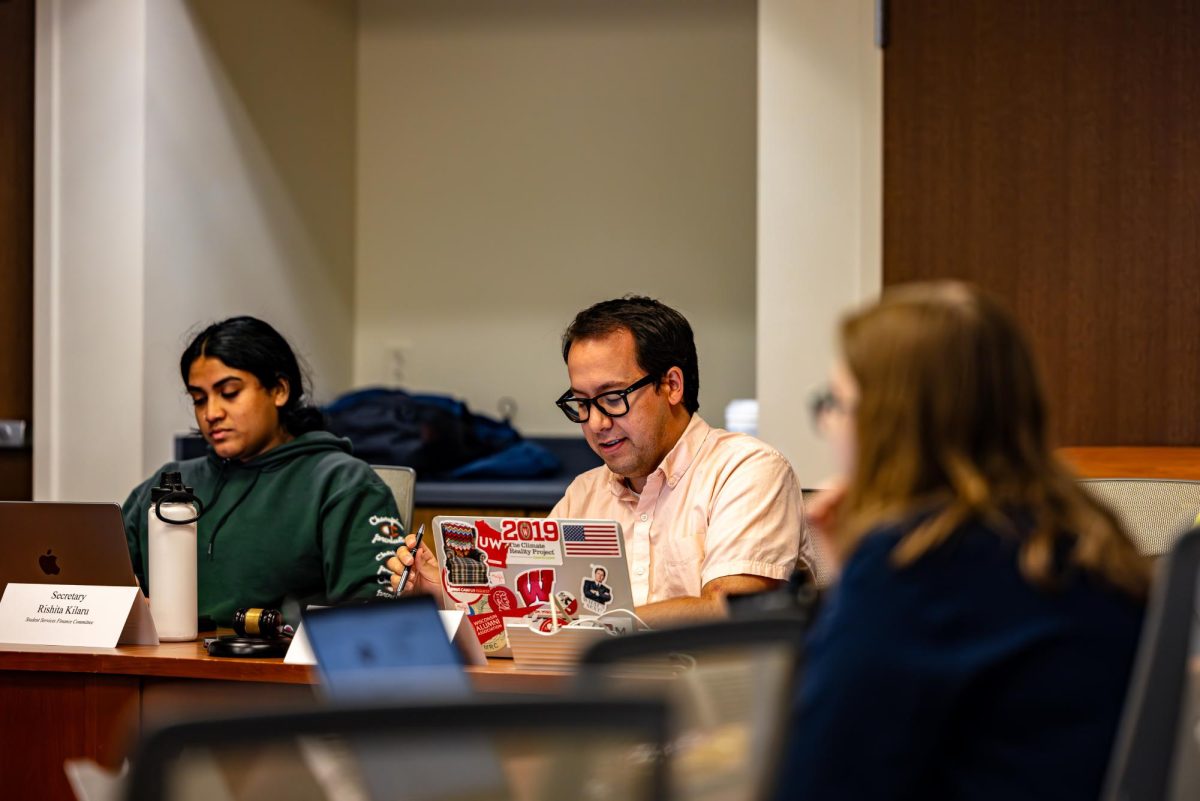University of Wisconsin Associate Professor of Bioethics and Philosophy J. Paul Kelleher led a Sustainability Energy Seminar on economic theories for the Social Cost of Carbon at the Wisconsin Energy Institute, Monday night.
Kelleher analyzed the ongoing debate on how to measure the damages of carbon through the balance of economic theory and ethics. Kelleher defined the SCC as the economic metric used to estimate the net impacts of one ton of carbon dioxide emissions.
Kelleher said the SCC is regarded as one of the most important economic concepts in the world, though many are unaware of its existence. He said the measure is essential to developing climate change and environmental regulatory policy.
“The Supreme Court ruled that the Social Cost of Carbon needs to be used by the federal government to quantify and use the SCC in its cost-benefit analysis of greenhouse gas mitigation policies,” Kelleher said.
Wisconsin Sea Grant collaborates with Chazen Art Museum to raise awareness of plastic pollution
SCC is the metric that lies between the area of cost-benefit analysis where it is no longer beneficial for private parties, such as businesses, to take into account third parties, such as future generations. Kelleher said economists want to know what the “sweet spot” is.
Kelleher said the way to calculate the number is highly sensitive based on the scientific and ethical choices economists make. The main variability that Kelleher discussed was the variance between discounting rates, which explain how much an economist’s theory accounts for damages to future generations compared to the present.
“We’re trying to package all damages created by carbon dioxide into one number,” Kelleher said. “When ethics has entered the SCC debate, it has largely entered as a question about what do we owe the future when it comes to evaluating their harms versus ours.”
Discount rates can have a large impact on how carbon emission damages are measured in the SCC. A low discount rate focuses more on future implications of carbon while a high discount rate focuses more on the present effects of carbon policy on the consumer.
Kelleher said the Obama Administration had a low discount rate, valuing carbon at $36 per ton, but the Trump Administration has a high discount rate and values one ton of carbon at one to seven dollars.
Gov. Evers takes first step to create carbon-neutral Wisconsin
Kelleher said economists use discount rates to evaluate various questions surrounding the SCC, using radically different ethical approaches. Kelleher said it is important for people to evaluate the uses of ethics in different economic theories that form climate change policy.
“If we emit one more ton of CO2 into the atmosphere, we expect that to create damages in the future. It just, it kills people … So this stuff matters. It’s technical and it’s hard to wrap your mind around but it matters,” Kelleher said.

















